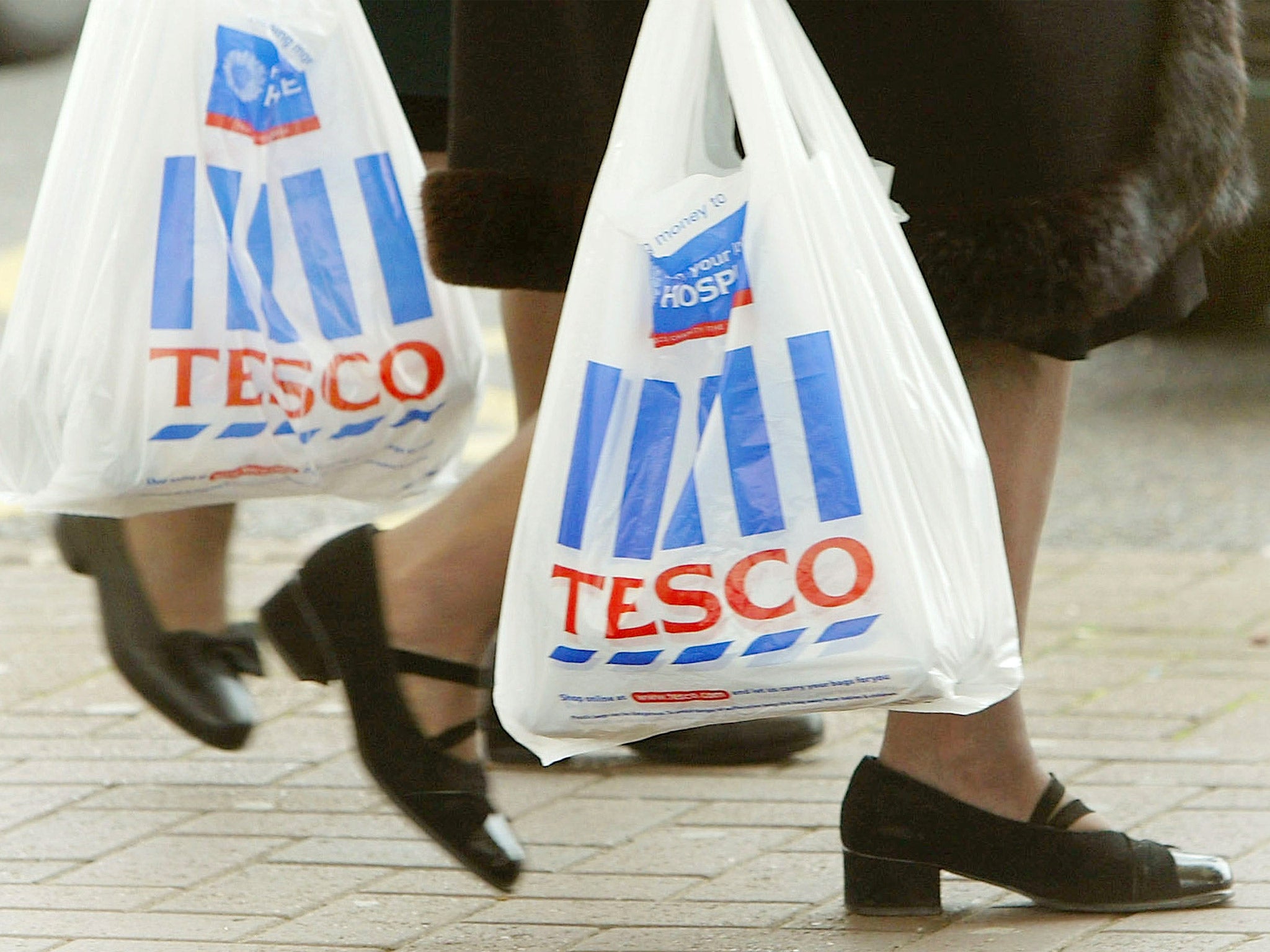Queen's Speech: ‘Food poisoning threat’ from the 5p plastic bag charge
Studies have shown an increase in the use of 'bags for life' can lead to a spike in illness rates as shoppers place items in bags already used to store fresh meat and raw vegetables

Your support helps us to tell the story
From reproductive rights to climate change to Big Tech, The Independent is on the ground when the story is developing. Whether it's investigating the financials of Elon Musk's pro-Trump PAC or producing our latest documentary, 'The A Word', which shines a light on the American women fighting for reproductive rights, we know how important it is to parse out the facts from the messaging.
At such a critical moment in US history, we need reporters on the ground. Your donation allows us to keep sending journalists to speak to both sides of the story.
The Independent is trusted by Americans across the entire political spectrum. And unlike many other quality news outlets, we choose not to lock Americans out of our reporting and analysis with paywalls. We believe quality journalism should be available to everyone, paid for by those who can afford it.
Your support makes all the difference.Government plans to make supermarkets charge 5p for plastic bags could result in an increase in food poisoning, medical experts have warned.
The charge, which was announced in the Queen’s Speech, is designed to cut new bag use by up to 75 per cent and reduce environmental damage caused by plastic bag blight.
But international studies have shown that an increase in the use of “bags for life” can lead to a spike in illness rates as shoppers place new items in bags already used to store fresh meat and raw vegetables.
Researchers in America found that a ban on plastic bags in San Francisco in 2007 may have increased deaths from food poisoning by over 50 per cent in a year.
Economists at the University of Pennsylvania investigated deaths and emergency admissions to hospital from “intestinal infectious diseases” in the wake of a ban on bags. It concluded that, as a result of the ban, San Francisco saw between 5.4 and 15.8 additional fatalities in a year from illnesses caused by food bugs.
“We find that both deaths and emergency room visits spiked as soon as the ban went into effect, Professors Jonathan Klick and Joshua Wright concluded. “Relative to other counties, deaths in San Francisco increased by 50 to 100 per cent, and ER visits increased by a comparable amount.”
They added: “Subsequent bans by other cities in California appear to be associated with similar effects. This suggests that the plastic bag ban generated serious public health problems.”
In another study in the UK, a selection of reusable bags was analysed by Glasgow Caledonian University’s School of Health and Life Sciences. Scientists analysed one square centimetre of each bag, which included plastic and cloth types. Four of the nine bags fell into the “heavily contaminated” category.
Under the plans announced today, a 5p charge will be introduced in England from October 2015 to help reduce the number of plastic bags handed out by retailers across the country, many of which end up as litter and harm the environment. Small retailers will be exempt from the charge.
In 2012, more than 7 billion single-use carrier bags were handed out in England by supermarkets. A 5p levy in Wales has shown significant success, reducing the number of bags given out in the country by 75 per cent. Northern Ireland has also brought in a charge, with Scotland set to do so this year.
Hugh Pennington, emeritus professor of bacteriology at Aberdeen University, who has chaired two major inquiries into E.coli, said it could result in “an increase in the number of cases of food poisoning”. But he added that packaged supermarket products should be entirely safe in re-used bags and present no threat to health.
A spokeswoman for Public Health England said it had not done any research into the contamination of “bags for life” but was aware of the studies that had been done. She added that people should take “sensible precautions such as handwashing before handling food or eating, and throw away visibly dirty bags”.
Join our commenting forum
Join thought-provoking conversations, follow other Independent readers and see their replies
Comments